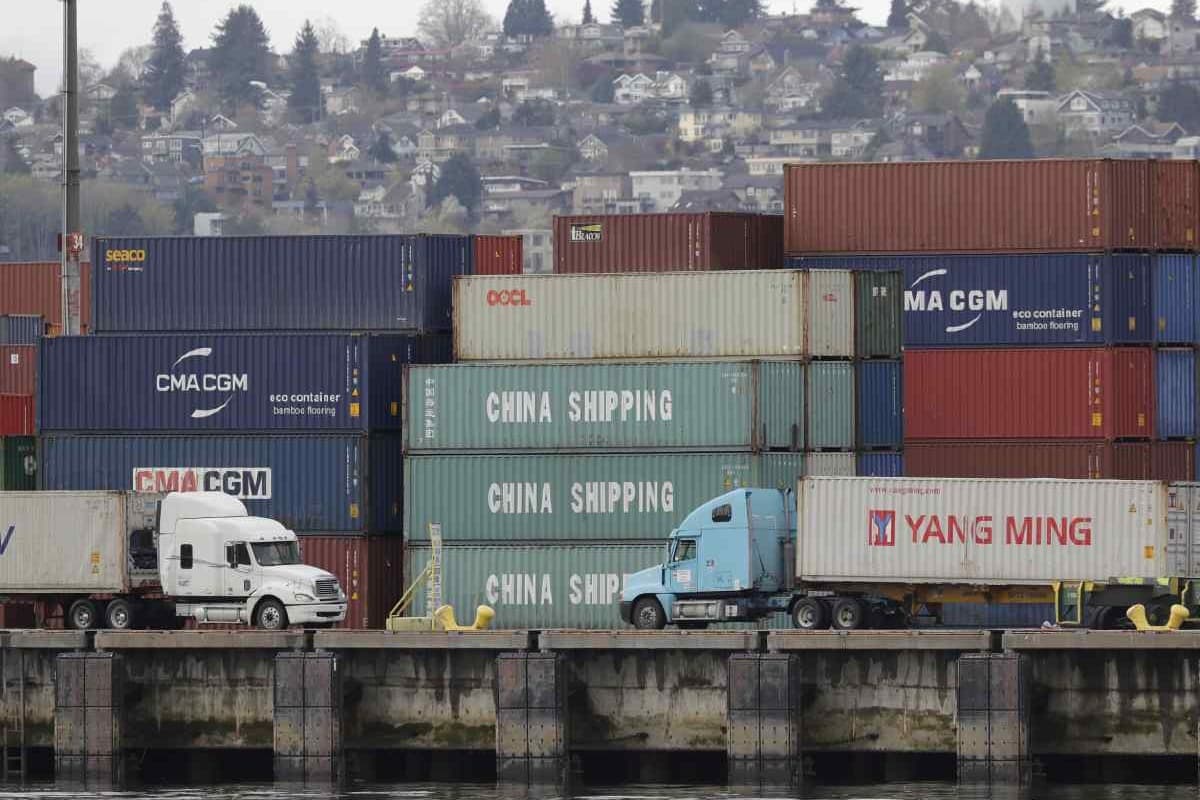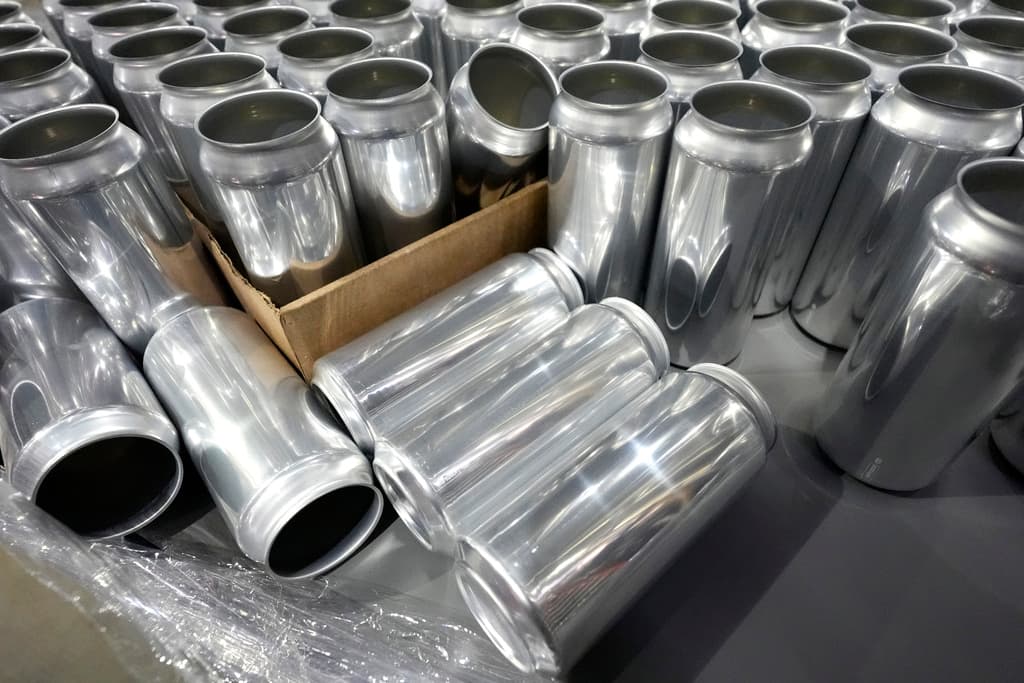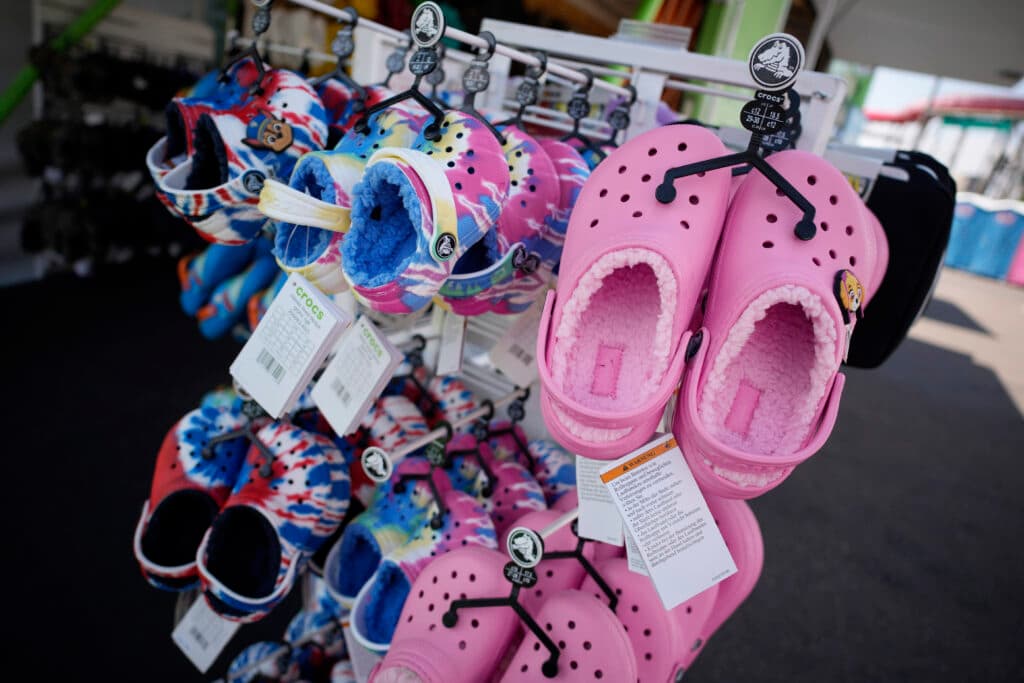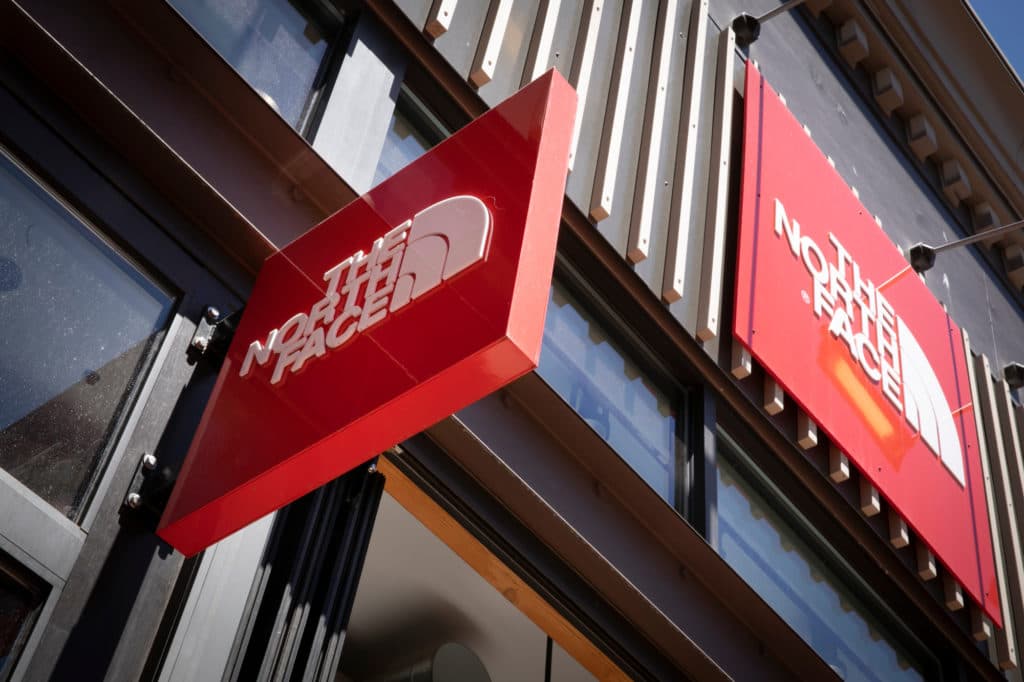
President Donald Trump’s trade war is starting to seep into the economic data. And shoppers are bearing the costs of tariffs as some things get more expensive and businesses pass the hike along.
For instance, the cost of furniture and household appliances in the metro area is up 5 percent from a year ago, mirroring a national trend, according to the U.S. Bureau of Labor Statistics. At the same time, cracks are emerging in the job market, even though the unemployment rate is holding steady.
The outlook is far from certain, and it’s difficult for experts to make sense of the conflicting signals. One barometer of the economy’s general health is what business leaders are telling investors on Wall Street. CPR listened in on recent earnings calls laying out financial results for the second quarter for some of Colorado’s biggest companies in an attempt to get an inside look at the impact of tariffs.
Whether it’s the business of clothes or aluminum cans, one thing is clear: Colorado executives are getting a lot of questions. The word ‘tariff’ appeared 63 times in the conference call transcripts for four Colorado companies.
Ball Corp.

For many Coloradans, Ball is best known as the namesake of Ball Arena, home to the Denver Nuggets and Colorado Avalanche, and host to star headliners like Taylor Swift. But the Westminster company’s actual business is being the world’s largest manufacturer of aluminum cans, which puts it squarely in the crosshairs of Trump’s trade salvos. Tariffs on aluminum jumped from 10 percent to 25 percent in March. Moreover, aluminum import taxes expanded to include Canada and Mexico, trading partners that were previously exempt.
Earlier this month, Ball CEO Daniel Fisher told investors tariffs were a drag on capacity at its facility in Monterrey, Mexico, during the second quarter. The plant’s future productivity is up in the air, he said.
“The wildcard is just going to be, can we use those facilities in Mexico … as we historically have, right, for the last decade or so,” Fisher said during the earnings conference call.
How tariffs will filter into the price of aluminum cans next year is still an open question, he said.
“I think everybody is spending time in Washington trying to fight for exclusions and things of that nature and just trying to figure out where the plane is going to land in terms of all the trade deals around the world,” Fisher said.
Scrap metal prices are already rising, he said. But that’s not his biggest concern.
“Candidly, we're more concerned about the demand side of tariffs in general writ large across the economy than we are about any kind of isolated metal market at this point,” Fisher said.
Crocs

It’s been a tough year on Wall Street for the Broomfield-based company known for its love-them-or-hate-them foam clogs. The company’s shares are down 24 percent since January. In May, Crocs scrapped its financial forecast for 2025 due to uncertainty over tariffs. Crocs is heavily reliant on overseas manufacturers in places like China, Vietnam, India and Cambodia.
Crocs’ Aug. 5 earnings update wasn’t reassuring. Company executives expect revenues to fall as much as 11 percent in the third quarter. Shoppers worried about inflation reigniting are pulling back, said CEO Andrew Rees. That makes it hard to raise prices in order to offset the cost of tariffs.
“As you look at the general population, there is a portion of that consumer base which we think [there] is ample evidence that they are super cautious. They're not purchasing, they're not even going to the stores, and we see traffic down,” Rees said.
Crocs CFO Susan Healy said the company will take a $40 million hit from tariffs during the second half of this year.
“While we can’t predict future tariff changes, we are planning our business at the current rates,” Healy said during the conference call.
VF Corp.

The Denver-based apparel company behind The North Face, Vans and Timberland took in more revenue than Wall Street analysts were expecting during the second quarter. That helped the company’s share price regain some ground lost when steep tariffs were first announced in April. Most of its products are made overseas.
VF Corp. CFO told investors that even though the tariff regime, as currently laid out, isn’t as extreme as first feared, it’s still going to sting. Tariffs could shave as much as $70 million off its bottom line in the upcoming year, he said.
Price hikes for shoppers are on the table.
CEO Bracken Darrel said tariffs are slowly making their way through supply chains and have yet to really bite at the cash register.
“It's going to take a while for that just to play out ... There's a lot of discussion about why is the economy so good? Why [have] the tariffs not shown up? I think it's because the tariffs really haven't shown up in most people's costs yet. They're flowing through inventory or making their way into our cost and everybody else's,” he said.
Arrow Electronics

It’s hard to pinpoint exactly what the Centennial-based electronics distributor does. The company wears a lot of hats. It doesn’t manufacture electronics, but it makes sure that the companies that do have what they need, like circuit protectors, capacitors, semiconductors and many other things. It also provides things like IT security and analytics services. Arrow has thousands of customers across industries, from health care and aerospace to consumer electronics and automakers. Its operations span the globe. Price increases by Arrow have the potential to filter down to a multitude of products the average consumer uses every day, like smartphones or speakers.
Arrow is passing along tariff impacts to its customers, though executives didn’t provide many details. CFO Raj Agrawal said tariffs added about 1 percent to what customers paid for components in the second quarter. That equates to roughly $53 million on $5.3 billion of sales. Notably, that’s lower than what the company forecast during its previous quarterly update in May.
Companies will start reporting earnings for the third quarter in October. Investors are hoping for more clarity on how tariffs are shaking out with more trade deals taking shape. Executives are being cautious about making predictions.
| This story is part of a collection tracking the impacts of President Donald Trump’s second administration on the lives of everyday Coloradans. Since taking office, Trump has overhauled nearly every aspect of the federal government; journalists from CPR News, KRCC and Denverite are staying on top of what that means for you. Read more here. |









